Women’s Silk Factory in Kabul
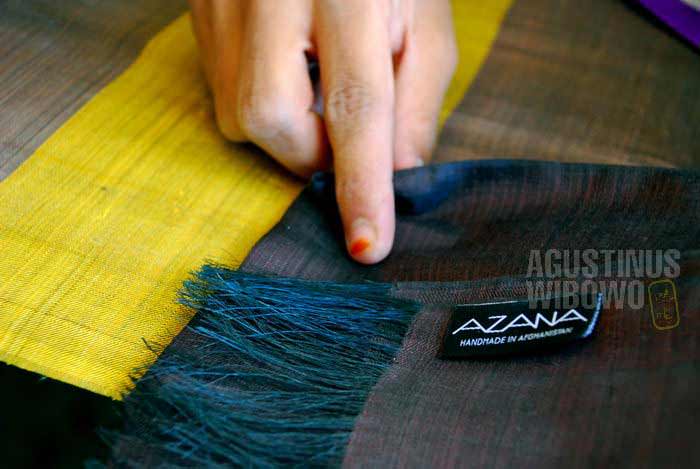
AZANA is an Afghanistan women’s small enterprise aiming to a much bigger dream
Not only they weave silk, they also weave their future.
“AZANA has changed my life,” says Nazdana, a 16-year-old girl who just recently learned how to weave silk shawls in AZANA, a silk factory managed by a woman director and operated mostly by woman workers, in deep alley of Kabul, where job opportunities for women are still scarce.
“Before joining AZANA, I used to only do house works. There are 14 people in my family, and I knew only how to cook food, wash their clothes, and clean our house. But, now I am very happy because I start to earn money from my own hands.
Not only does Nazdana learn about silk weaving, now she starts to grab pens to write. Ms Shaima Breshna, the director of AZANA silk factory, provides literacy class for the female employees of the factory.
Nazdana remembers, “At the first time [joining the class], I even did not know how to hold pencil. Other colleagues laughed at me. I felt ashamed and wondered whether I could really be learned. Even I could not do the simplest thing.”
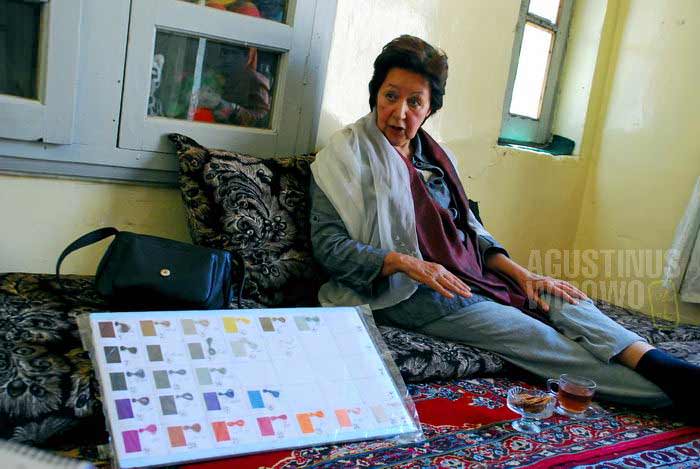
Ms Breshna with her innitiative, not only giving women job but also knowledge.
But, thanks to never-ending support and motherly-spirit of Ms Breshna, many of young female workers in the factory are now literate. Ms Breshna tries to motivate the women by providing books, pencils, and interesting reading materials from foreign countries.
In my talks with the factory workers, I found that motivation only is not enough to make women educated. Many of the women, especially the old ones or those who already married, refuse to join the literacy class.
“How can we concentrate to learn reading and writing, if we have so much tension in our daily life?” asks Karima, a 22-year-old female worker, rhetorically. Despites of her young age, she has already four children. It is her children who always occupy her mind.
“My husband works in a gas station. I spend most time of my day working here in this silk factory. Until I reach home afternoon, my eldest daughter, who is seven years old, takes care of my other children. That’s why I even cannot concentrate to my work here, no need to mention to spend more hours to learn reading and writing. There’s no more space in my mind for that.”
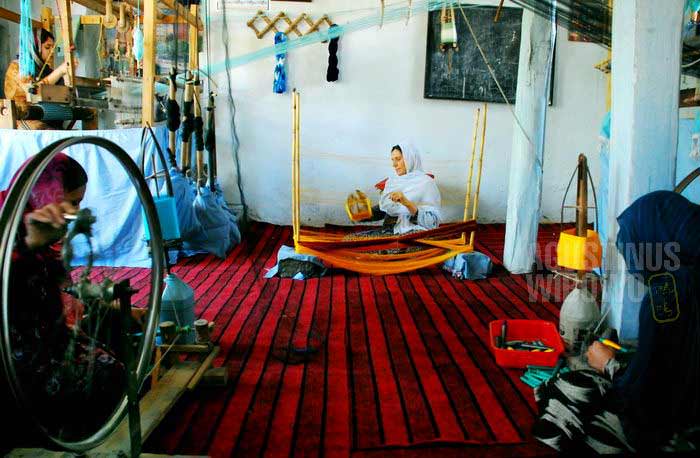
Weaving silk and weaving hopes
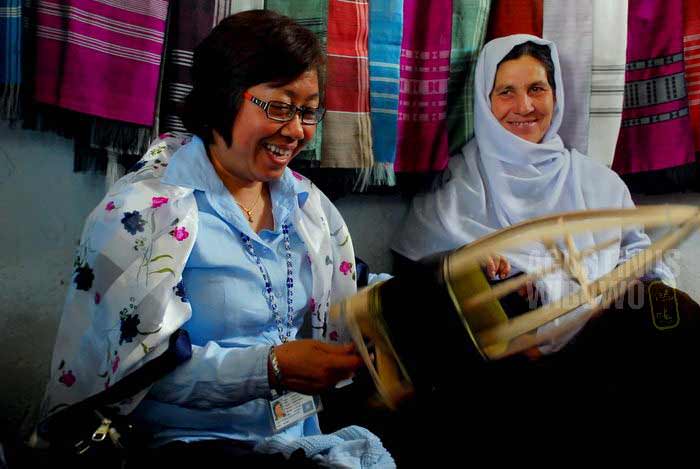
A United Nations staffer inspect the silk products of AZANA
For Karima, the most important thing in her life is just to support life of her children. “Every month I receive 3,500 Af, I spend the money on my children. And that’s enough to make us living happily.”
Karima problem is shared by other colleagues. Nafas Jan, a 60-year-old widow, says, “I have two children. My daughter is 18 years old and my adopted son is only 5 years old. We all live with my brother in my father’s house. I am the only one to provide them accommodation. My life is full of pressure. I didn’t have any choice but to stop sending my daughter to go to school.”
Nafas has passed different episodes of decades of wars in Afghanistan. The experience has framed her view of life.
“I cannot trust other people. I know that I have to send my daughter to school instead of commanding her to stay at home to take care of her little brother. But as I told you, I didn’t have any choice. I am old. I cannot study anymore, but I always encourage the younger girls in this factory to take the literacy class. They still have longer future ahead, so they should be educated to make their life better.”
Even though Nafas herself was not educated, she realized that it’s the key to change one’s life.
I also agree with Nafas’ opinion – a strong will plus motivation can make different change to life. Nafas introduces me to five female workers who always follow literacy class after working hours in AZANA.
“The first time we knew how to read and write,” says one of the ladies, “We were very proud of ourselves. Here we not only learn weaving but we also study precious knowledge. I am happy that now I can read commercials on TV and articles on books. I also know how to use my own mobile phone.”
What was the feeling of being illiterate? Nafas describes it as being blind. You go to the streets, you understand no sign. You see newspapers, you understand no story. World is just about images, but after you read, the images tell stories. “Now I am not blind anymore,” she emphasizes.
AZANA may be just a small factory hidden in narrow alleys. But Ms Breshna’s initiative to educate the female workers has brought changes in live of many.
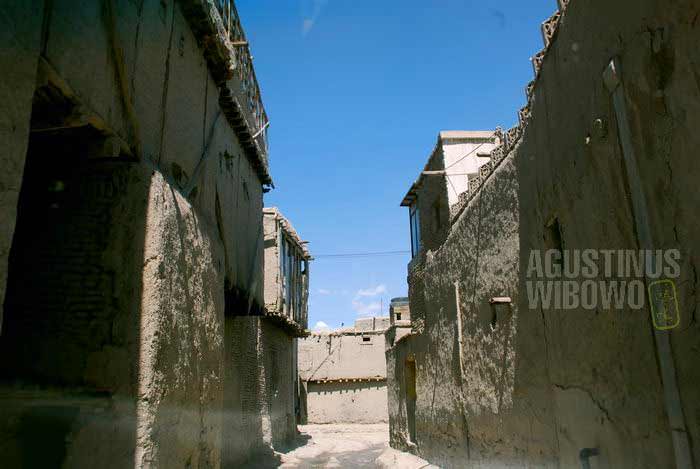
The factory is deep hidden inside alleys of mud-houses in Kabul, Afghanistan

Leave a comment